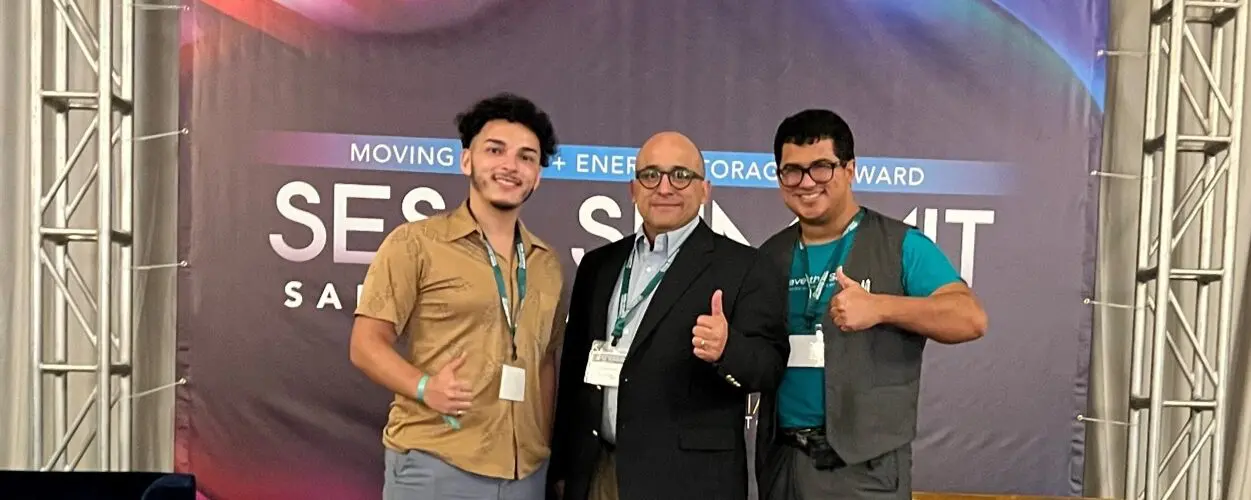Centering Underserved Communities, and Uplifting Underrepresented Leaders in Connecticut’s Climate and Clean Energy Advocacy Efforts: Lessons from Puerto Rico
On October 18, 2023, Acadia Center Climate and Energy Justice Policy Associate, Jayson Velazquez, presented a keynote address at the Latine and Puerto Rican Voices for Climate Action Roundtable at the Legislative Office Building in Hartford, Connecticut. The Roundtable was convened to raise awareness about how climate change impacts Latine communities in Connecticut and how climate change and clean energy solutions can bridge gaps to combat environmental and energy injustice.
In that speech, Jayson called for the following:
- Rejecting the expansion of fossil fuel facilities and fossil fuel infrastructure
- Committing to well-compensated, unionized, green jobs – specifically in and with environmental justice communities.
- Factoring in the social cost of carbon – in decision-making and economic modeling
- Embracing clean heating and energy efficiency in homes – including reallocating funds in inflation-adjusted dollars to the energy efficiency programs and restoring the amount borrowed from the 2024 Conservation and Load Management Plan to cover 2023 demand.
- Supporting multifamily energy efficiency and tenant protection – including rent stabilization on units receiving energy efficiency upgrades in environmental justice communities
- Reinstating free and fair public transportation
- Intentionally developing stakeholder engagement processes – that provide childcare, transportation, food, compensation, language interpretation and translation, ensure physical accessibility, and operate at multiple times.
- Providing space for people and communities to be heard first and foremost – understand and honor the value and depth of community knowledge, expertise, and experience.
- Connecting these issues to livelihood – understand that these issues have to connect to keeping the lights on, a roof over the heads of families and individuals, and food on the table.
As a follow-up to the Roundtable, Jayson was invited by the Connecticut Green Bank to attend the Solar and Energy Storage Association (SESA) Summit of Puerto Rico. The SESA Summit provided context about Puerto Rico’s grid modernization pathways, distributed energy resources, and striking a balance of equitable stakeholder engagement and providing reliable . Solar and battery storage were highlights of the conference, and Sunnova Energy International Inc. touted their Sentient Virtual Power Plant platform, which utilizes distributed solar and energy storage aimed at enhancing grid stability during peak demand periods. Plenty of nuance is needed to understand how Puerto Rico’s current grid development fits into historic and ongoing energy and environmental injustices. Hurricanes Irma and Maria in 2017 exacerbated financial disparities and debt that contributed to the destruction of already disinvested infrastructure. Community leaders are hopeful that the influx of Federal funding to develop solar energy in Puerto Rico will be allocated towards community-driven, decentralized rooftop solar, energy resilience and microgrids, and community solar such as that of Casa Pueblo.

Left to right: Jayson Velazquez, Climate and Energy Justice Associate at Acadia Center; Sergio Carrillo Managing Director, Incentive Programs at the Connecticut Green Bank; Alex Rodriguez, Environmental Justice Specialist at Save the Sound
There are lessons to be applied from Puerto Rico in Connecticut, where 17.7% of the population identifies as Hispanic or Latino, and of that half identifies as Puerto Rican. Opportunities to support Puerto Rican and Latine communities in Connecticut can come from climate and clean energy solutions and advocacy approaches that are culturally competent, inclusive from their foundations, and equitably distributed in their benefits and burdens. As Connecticut considers grid modernization, enhancing grid stability during peak demand periods through distributed energy resources and increased energy efficiency, our Latine communities cannot be left behind. Connecticut climate and clean energy advocates have an opportunity to center underserved communities through policy and solution design and implementation, workforce development programs, education, and equitable stakeholder engagement. Leading Puerto Rican environmental and energy advocates and organizers in the state include Alex Rodriguez from Save the Sound who led a coalition in support, design, and advocacy for S.B. 1147: An Act Concerning the Environmental Justice Program of the Department of Energy and Environmental Protection. Leticia Colon de Mejias is another well-known leader who holds numerous state and federal positions and conducts Efficiency for All’s nationally recognized workforce development programs, energy and environmental justice organizing, and equity advocacy. Acadia Center remains engaged by advocating for climate and clean energy solutions that uplift and support underrepresented communities and center environmental and energy justice.




















Follow us